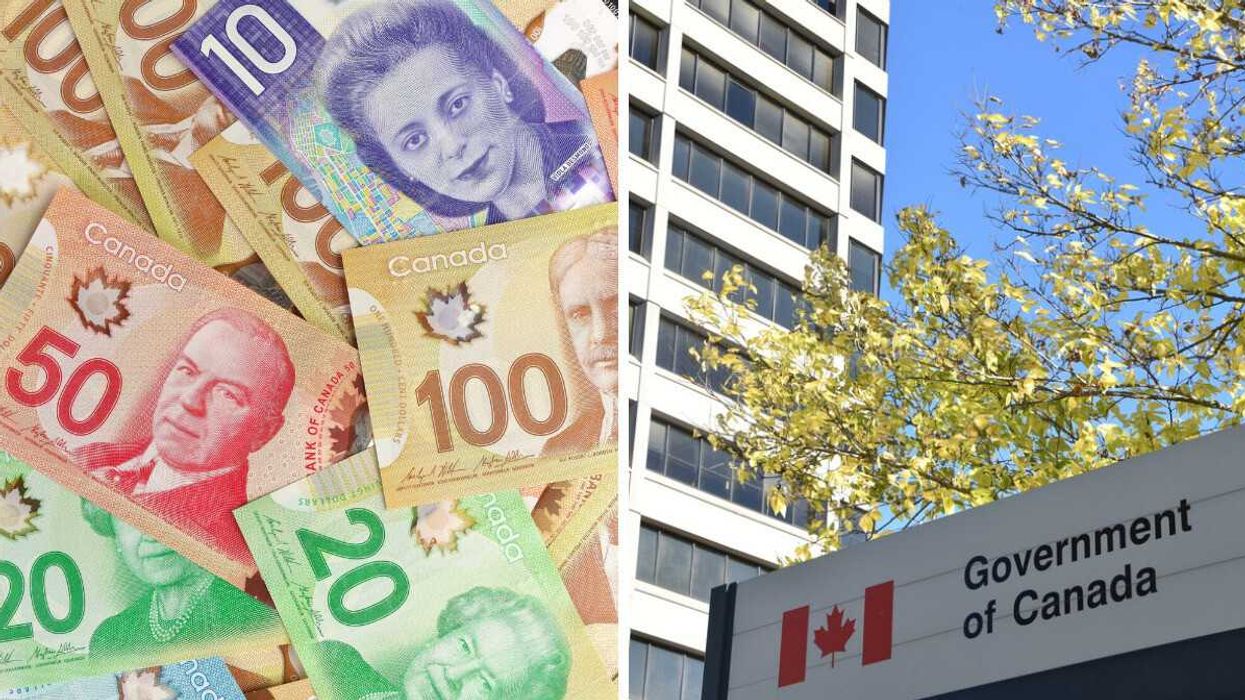Government jobs in Canada pay more than private ones and the gap is even bigger than you think
The perks are better too — and it's all funded by your tax dollars. 💵

New study reveals the pay gap between the public and private sectors in Canada — and it's not even close.
If you've ever looked at a Government of Canada job and thought, "That salary looks sweet," you're not wrong. A new study just confirmed what many Canadians already suspected: government jobs in Canada come with some serious pay — and some serious perks.
The study looked at salaries in Canada and found that workers in public sector jobs — which includes federal, provincial and municipal employees — earn more on average than folks doing similar work in the private sector.
The report, published on Thursday by the Fraser Institute, used detailed data from Statistics Canada and adjusted for things like age, tenure, education and job field to make sure the comparisons were fair.
And even after all those adjustments, government workers still came out ahead with a 4.8% wage premium in 2024. That means someone doing a job for the Government of Canada could be making thousands of dollars more than a private sector employee doing the same thing.
The wage gap is even bigger without adjustments
Perhaps even more unsettling is the size of the lead if you don't adjust for differences. Just looking at the raw numbers, the wage gap is even bigger. As in, five times bigger.
The study found that on average, public sector employees were paid 26.1% more than those in the private sector. That's a pretty significant gap, especially when you consider these are taxpayer-funded salaries.
But that's not where the differences stop.
Government jobs come with way better benefits
The report didn't just look at paycheques. It also compared non-wage benefits between the public and private sectors — and once again, government workers came out on top.
For starters, nearly 87% of public sector workers had a registered pension plan in 2024, compared to just 22% in the private sector. And among those who had pensions, 91% of government employees had defined-benefit pensions — meaning guaranteed income in retirement — versus only 41% of private sector workers.
The report also found that public sector workers retired 2.2 years earlier on average, and were five times less likely to lose their jobs compared to private sector employees. In 2024, just 0.6% of government workers lost their jobs, compared to 3.2% in the private sector.
And when it comes to taking time off, full-time government employees took 15.7 days off for personal reasons on average in 2024 — over a week more than their private sector counterparts, who took 9.3 days on average.
Why it matters
According to the Fraser Institute, this wage and benefits gap could be a problem for governments trying to balance their budgets.
"At a time when governments across Canada are facing immense fiscal pressures, bringing government sector compensation in line with the private sector would help reduce costs without necessarily disrupting services," said Jake Fuss, director of fiscal studies at the Fraser Institute and a co-author of the study.
"Closing the compensation gap between the government and private sectors would reduce costs and help governments move towards balancing their budgets."
Right now, about 4.5 million Canadians work in the public sector — that's around one in five jobs across the country. So even small differences in pay and perks can add up to billions in spending.
Of course, it also raises questions about whether the private sector is doing enough to stay competitive, especially as workers look for more stability, better benefits and higher pay in a tight job market.
Whether you're thinking of applying to a high-paying job or just curious about how your tax dollars are being spent, this study offers a clear picture: public sector jobs in Canada pay more, come with better benefits and offer greater job security than your average private sector gig — and it's not even close.
AI tools may have been used to support the creation or distribution of this content; however, it has been carefully edited and fact-checked by a member of Narcity's Editorial team. For more information on our use of AI, please visit our Editorial Standards page.
- Minimum wage just went up across Canada — but one province got left out ›
- Canada's highest-paying job fields were revealed and #1 isn't medicine, law or engineering ›
- These Government of Canada jobs will pay you up to $110,000 if you know a foreign language ›
- These are Ontario's highest-paying job fields right now and #1 isn't finance, law or medicine - Narcity ›
- Here's what an 'average' salary looks like in every Canadian province right now - Narcity ›
- The average salaries across Canada were revealed — Here's which spot earns the most in 2025 - Narcity ›